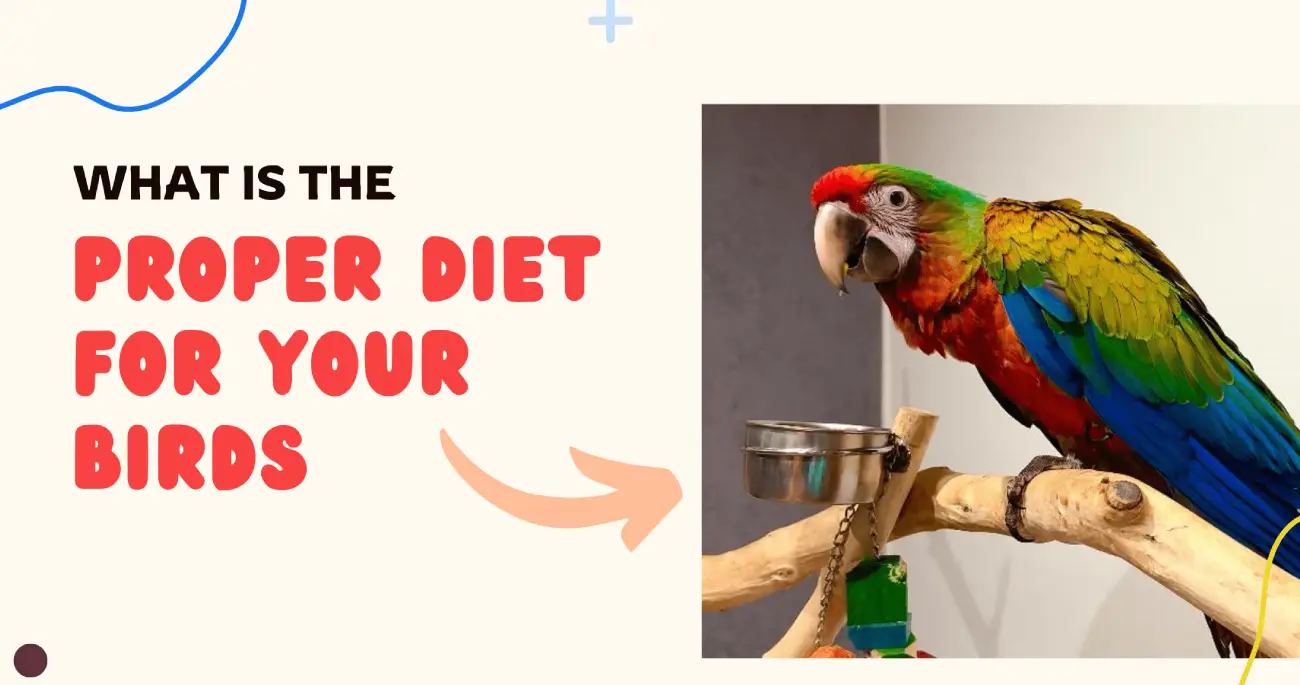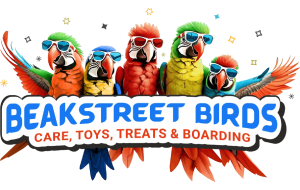
- Bird Boarding
- March 31, 2025
- No Comments
Proper Diet for Your Birds
A proper diet is the cornerstone of your bird’s health and happiness. Birds require a carefully balanced diet that meets their nutritional needs, supports their energy levels, and promotes their overall well-being. At Beakstreet Birds, we understand the importance of feeding your feathered friends the right foods, and we’re here to help you make informed decisions about their nutrition.
In this blog, we’ll explore the essential components of a bird’s diet, common feeding mistakes to avoid, and how to tailor their meals based on species-specific requirements. Whether you’re a first-time bird owner or an experienced caretaker, these tips will ensure your bird thrives on a healthy diet.
1. The Foundation: Pellets
Pellets should form the foundation of most birds’ diets as they are nutritionally complete and prevent selective eating habits. Unlike seeds, which can be high in fat and lack essential nutrients, pellets provide a balanced mix of vitamins, minerals, and proteins.
Recommended Brands:
- Harrison’s Bird Diet
- Zupreem
- Kaytee Exact
Tip: Choose pellets designed for your bird’s species and size to ensure optimal nutrition.
2. Fresh Vegetables: A Vital Supplement
Vegetables are an essential part of a bird’s diet, providing fiber, vitamins, and minerals that support their immune system and digestion. Dark leafy greens like kale, collard greens, and broccoli are particularly beneficial.
Other Recommended Vegetables:
- Carrots
- Sweet potatoes (cooked)
- Green beans
- Parsley
- Zucchini
Avoid: Avocado, onion, and garlic as they can be toxic to birds.
3. Fruits: A Tasty Treat
Fruits should be offered in moderation as they are high in natural sugars. While they are a great source of hydration and vitamins, overfeeding fruits can lead to obesity or health issues.
Popular Fruits for Birds:
- Papayas
- Bananas
- Melons
- Mangoes
- Apples (remove seeds)
Tip: Limit fruit intake to 5% of your bird’s overall diet.
4. Grains & Legumes: Energy Boosters
Cooked whole grains like brown rice, quinoa, and oats provide energy while legumes such as cooked beans offer protein. These foods are ideal for larger parrots like macaws or African Greys that require higher energy levels.
Examples:
- Wild rice
- Lentils
- Chickpeas
5. Protein Sources: Essential Building Blocks
Protein is vital for maintaining muscle health and supporting growth in birds. Cooked eggs or egg substitutes are excellent sources of protein that most birds enjoy.
Other Protein Options:
- Tofu
- Whole grain bread (in moderation)
6. Supplements: Filling Nutritional Gaps
Even with a balanced diet, some birds may require additional supplements to meet their nutritional needs:
- Calcium: Provide cuttlebones or mineral blocks for strong bones and egg production in females.
- Vitamin D3: Essential for calcium absorption; ensure your bird gets sunlight or use fortified supplements.
7. Common Feeding Mistakes to Avoid
- Seed-Based Diets: Seeds are high in fat and lack essential nutrients; they should only be offered as occasional treats.
- Leaving Food Too Long: Remove uneaten fresh food after 3–4 hours to prevent bacterial growth.
- Overfeeding Treats: Excessive treats can spoil your bird’s appetite for balanced meals.
8. Tailoring Diets by Species
Different bird species have unique dietary needs:
- Budgies & Cockatiels: Require a mix of pellets with occasional seeds due to high metabolism rates.
- African Greys & Macaws: Thrive on pellets supplemented with fresh vegetables and protein-rich grains/legumes.
- Eclectus Parrots: Need more fruits than other parrots due to their specialized digestive systems.
Why Choose Beakstreet Birds?
At Beakstreet Birds in Sachse, TX, we prioritize the health of every bird we care for or sell by offering expert advice on proper nutrition tailored to each species’ needs. Our custom seed mixes include organic grains, dried vegetables, nuts, and herbs formulated to provide complete nourishment without fillers or preservatives.
Whether you’re looking for premium parrot food or guidance on creating a balanced diet for your bird, Beakstreet Birds is here to help! Contact us today or visit our facility to learn more.

